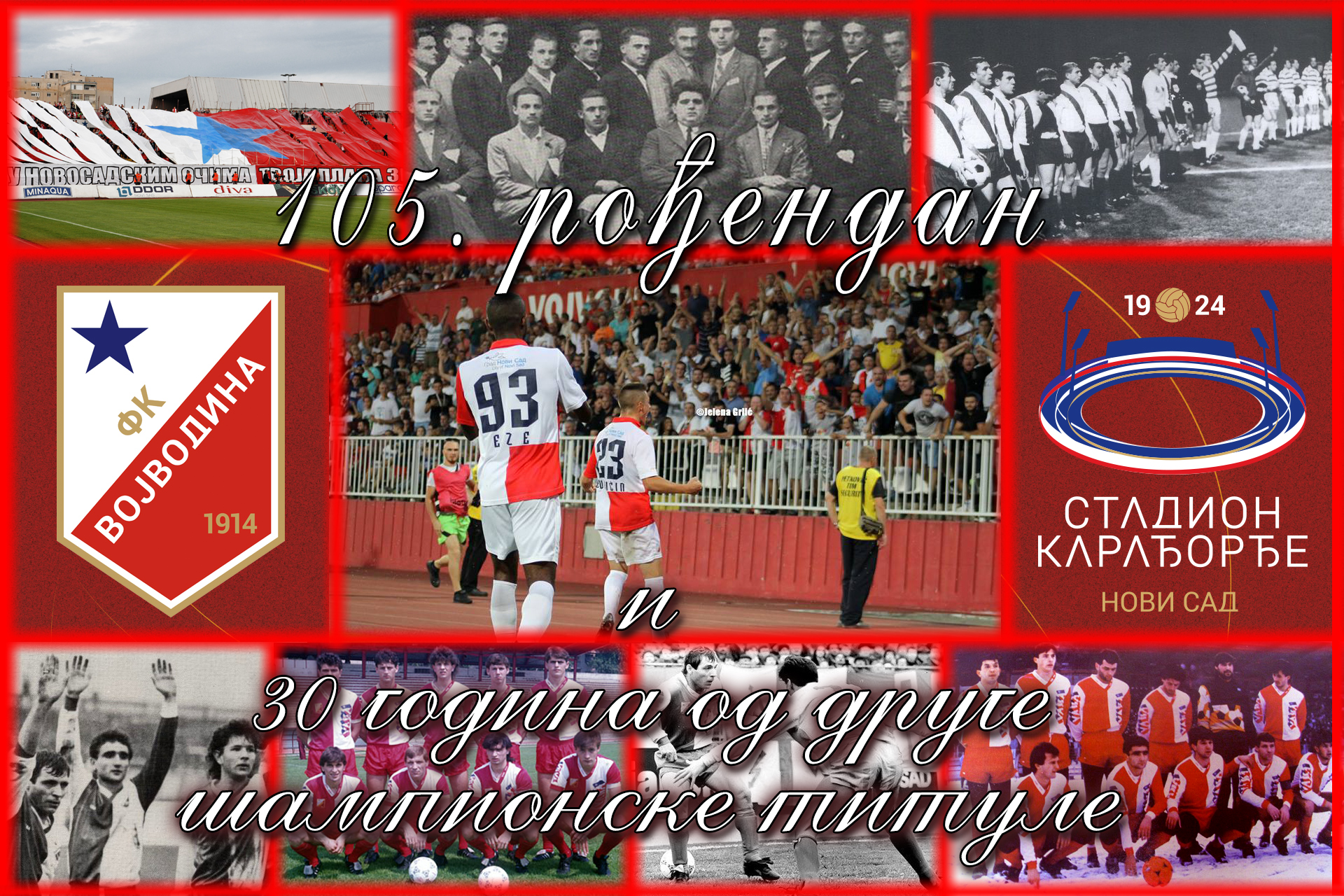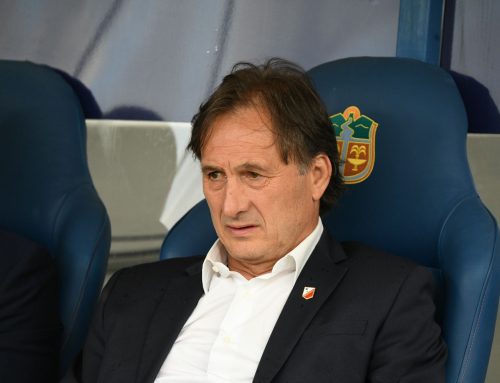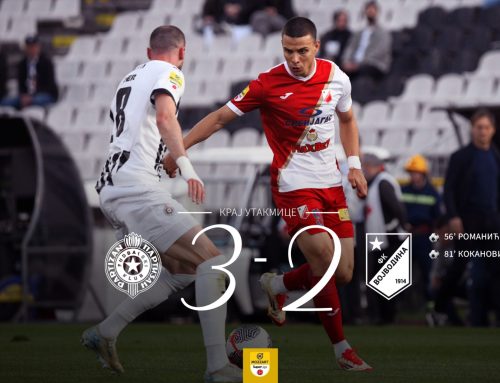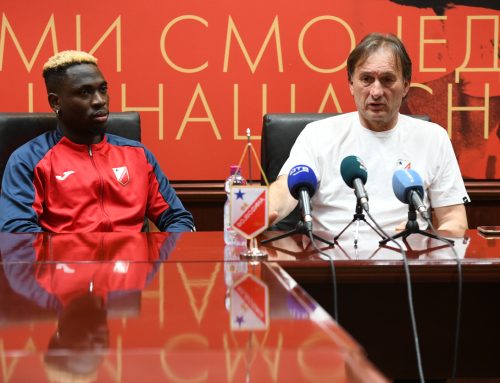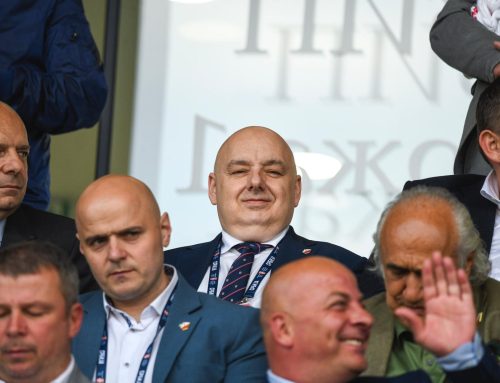Vojvodina Football Club today celebrates its 105th birthday! In the year in which it also celebrates three decades of winning its second championship title, and just on the day when of the 59th Vojvodina derby against Spartak, the “old lady” marks an anniversary which rarely some club in our country can be proud off. On this occasion, today at 12 PM, at the beginning of Temerinska street, at a memorial plaque set up five years ago in memory of the place where the club was founded in 1914, a gathering will be held, attended by veterans, fans and all those for whom Vojvodina was and still is an indispensable part of their life.
Vojvodina Football Club, commonly known as Vojvodina Novi Sad or simply Vojvodina and familiarly as Voša, is a Serbian professional football club based in Novi Sad, Vojvodina, the second largest city in Serbia, and one of the most popular clubs in the country. The club is the major part of the Vojvodina multi-sport club society and currently the second oldest football club in the Serbian Superliga and the most successful football club in Serbia next to the rivals Red Star Belgrade and Partizan Belgrade.
In its long history, Vojvodina was one of the most successful clubs in the former Yugoslavia, winning two First League titles, in 1966 and 1989, being runners-up in 1957, 1962 and 1975, achieving 3rd place in 1992 and finishing 5th in the competition’s all-time table. Vojvodina was also runners-up in the Yugoslav Cup in 1951. It won the UEFA Intertoto Cup in 1976, the Mitropa Cup in 1977 and was also runners-up of the Mitropa Cup in 1957 and the UEFA Intertoto Cup in 1998. From 1993 to 1997, Vojvodina won the 3rd place in the national championship five times in a row and was runners-up in the domestic cup in 1997. It was runners-up in the Serbian Superliga in 2008–09 and 3rd in 2007, 2008, 2011, 2012, 2013 and 2017. Vojvodina was also runners-up of the Serbian Cup in 2007, 2010, 2011 and 2013. The first cup trophy Vojvodina won in 2014.
On 6th of March in 1914, in Sava Šijakov’s weaving mill in the Temerinska Street 12, a group of students of the Serbian Orthodox high school, with the help of intellectuals and craftsman, established a football club in Novi Sad. The club was founded in secrecy, because the former Austro-Hungarian authorities banned larger organized gatherings of juveniles in the Vojvodina region, which was inhabited mostly by Serbs. The club took the name Vojvodina, in order to emphasize the memory of the political-territorial unit of the Serbs in the “Serbian Vojvodina” in which the Serbs, at least on paper, got the same rights as all other citizens in the Habsburg Empire, for which they have fought for years. The name Vojvodina means in Serbian a type of duchy, more specifically, a voivodeship. It derives from the word “vojvoda”, and means “one who leads warriors” or “war leader”.
Among the club founders on that day were the future textile industrialist Milenko Šijakov, the future university professor Vladimir Milićević, the future chemist Milenko Hinić, the future lawyers Radenko Rakić, Kamenko Ćirić, Gojko Tošić, Đorđe Živanov and Branko Gospođinački, the future doctor of law Kosta Hadži and others. The new club played its first match in the village of Kovilj against local club FK Šajkaš. Vojvodina played in bright blue colours and white shorts and won by 5–0. Svetozar Jocković, Jovan Ljubojević, Milorad Milićević, Dušan Kovačev, Jovan Jocković, Ozren Stojanović, Sava Ignjačev, Predrag Gavanski, Predrag Stojanović Ciga, Živojin Đeremov and Uroš Čakovac entered the record books as the first players in the history of Vojvodina. The players were mainly pupils and students, who came from Prague in the summer holidays and played only that one match, because shortly after that World War I broke out. The strict hand of the Austro-Hungarian authorities stopped all Serbian organizations in Novi Sad and for the first time, Vojvodina was in a situation to be shut down.
After the liberation, Vojvodina resumed the work thanks to the enthusiasm of Serbian students from Prague. The first secretary of Vojvodina became Milenko Šijakov, son of weaving mill owner Sava Šijakov, and the first president became dr Živko Bajazet, the longtime president of the Serbian merchant bank and member of the Soko organization. The club financed solely by membership fees and by generous contributions as by Daka Popović, the Novaković brothers, Ilija Balabušić and the members of Dunđerski family. Part of the Vojvodina players and management who studied in Prague were also members of football club Slavia Prague. The Czech club supported the Vojvodina members during the difficult times before and during World War I and contributed in the development of the club. In 1920, from Prague was brought the first set of red and white jerseys. At the club meeting held on 23 July 1922, it was decided that, in honour of Slavia Prague, the red and white colors adorn the jerseys of Vojvodina. The coat of arms was also partially modeled after Slavia Prague’s coat of arms, where the red star of the Czech team was replaced with the blue star, so that Vojvodina’s coat of arms had all the colors of the Serbian flag. The first coach, technical director and chief organizer of Vojvodina was the lawyer dr Kosta Hadži, one of the main founders of Vojvodina and the Novi Sad Football Subassociation…


